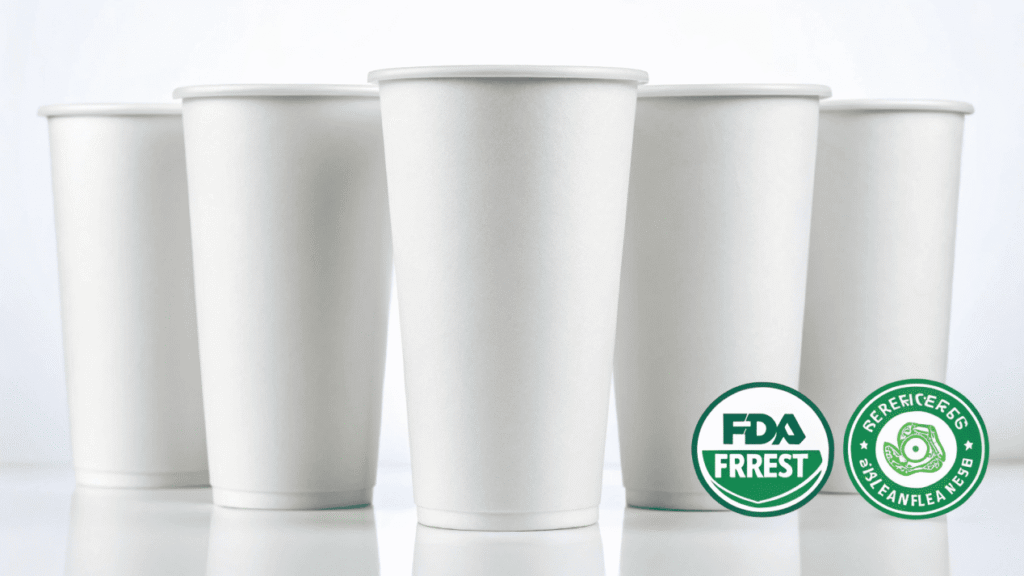You're about to order thousands of paper cups for your brand. You assume they are safe, but how can you be sure? You're trusting a supplier with your brand's reputation.
The best cups are made from 100% food-grade virgin paperboard with the right waterproof coating and backed by major safety certifications. Never compromise on these three points.
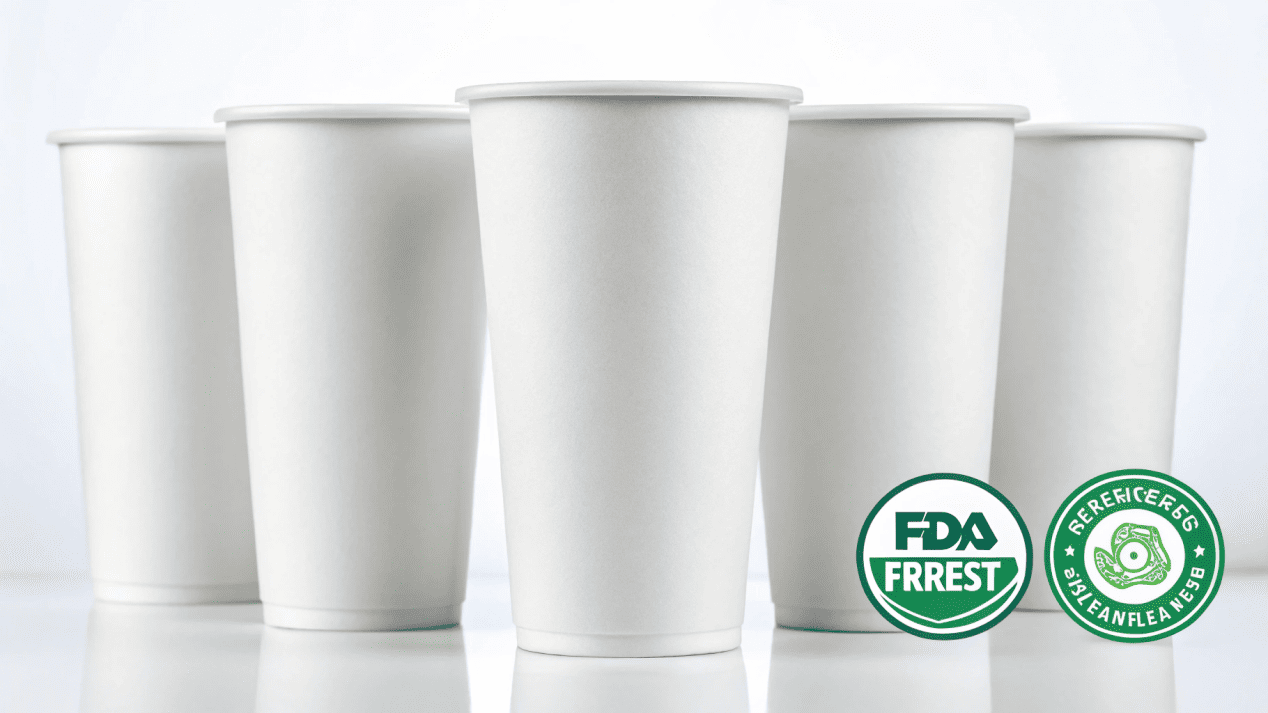
A paper cup looks simple, but it is a piece of food-grade engineering. For over 21 years, my entire business has been built on understanding the raw materials that go into that cup. The wrong paper can be unsafe, and the wrong coating can ruin a customer's experience. These aren't just technical details; they are the foundation of your product's quality and your customers' trust. Let's build that foundation on solid ground, together.
Should You Use Recycled Paper for Your Cups?
You want to make an eco-friendly choice, and "recycled" sounds like the perfect answer. This makes you wonder if you can use it for your cups to be more sustainable.
No, absolutely not. Recycled paper is not safe for direct contact with food or drinks due to potential contaminants. Always demand 100% food-grade virgin paperboard for your cups.
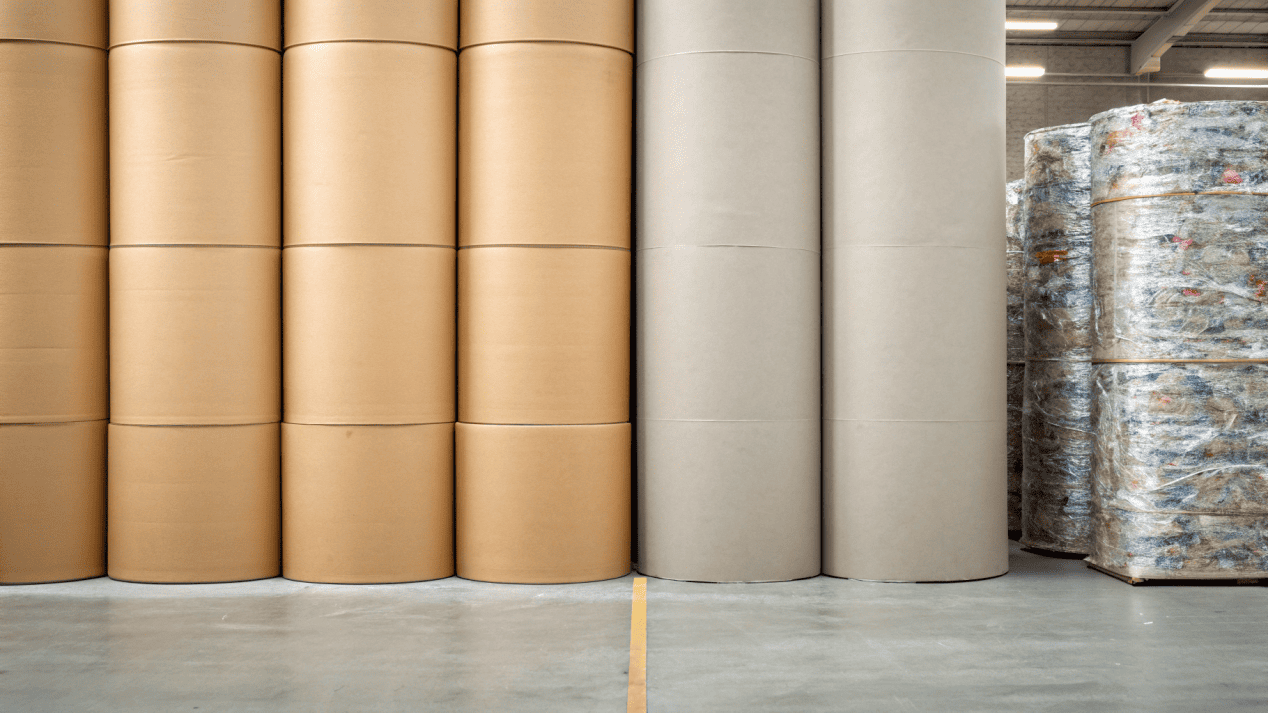
This is the first and most important rule of food packaging safety. I tell every client this is non-negotiable. While the word "recycled" is great for marketing, it's dangerous for primary food packaging like cups.
Why Food-Grade Virgin Board is Essential
Virgin board means the paper is made from 100% fresh wood pulp from trees. It has never been used for anything else. This is the only way to guarantee that the paper is completely pure and free from any contaminants like old inks, glues, dirt, or chemicals from its past life. The paper fibers are also long and strong, which gives the cup the stiffness it needs to hold a hot or cold liquid without becoming weak. A cup made from virgin board feels sturdy and reliable in your customer's hand.
The Problem with Recycled Board
The recycling process chops up paper fibers, making them shorter and weaker. A cup made from this material would be flimsy and unreliable. More importantly, it's impossible to know what the paper was used for before. It could have been a newspaper with chemical inks or a box with industrial glues. While the recycling process cleans the paper, it cannot guarantee the complete removal of all these microscopic contaminants. We never take that risk. Recycled paper is great for a cardboard shipping box, but never for the cup your customer drinks from.
Which Waterproof Coating Is Right for Your Brand?
You see different coatings like PE, PLA, or the new "Water-Based" options. You are confused about which one gives the best performance and matches your brand's environmental goals.
PE is the reliable standard. PLA is for cold drinks only and needs industrial composting. Water-based coatings are the modern solution, designed for standard paper recycling.
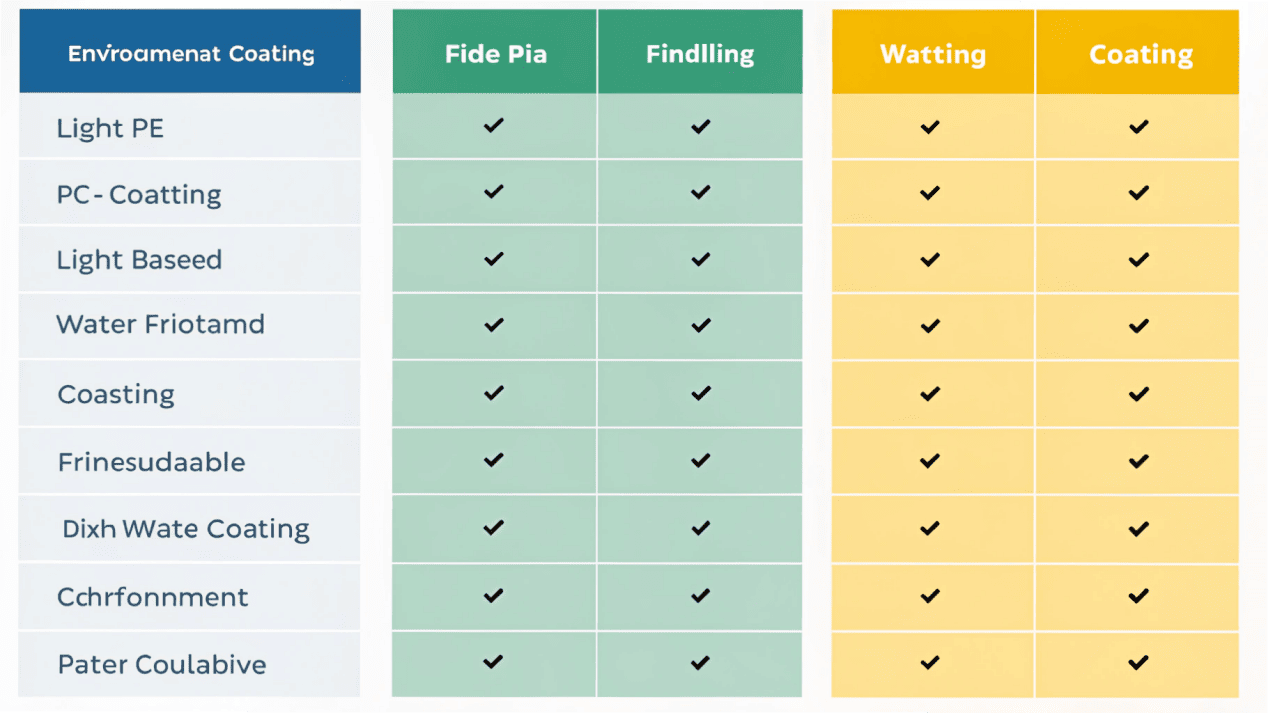
The paper gives the cup its structure, but the coating is what makes it waterproof. This super-thin layer is where performance and your eco-story meet. As a manufacturer, I work with all three, and here is my honest assessment.
| Feature | PE Coating | PLA Coating | Water-Based Coating |
|---|---|---|---|
| Source | Fossil Fuels | Plants (Corn) | Waterborne Polymers |
| Hot Liquid (90°C+) | Excellent | Poor | Excellent |
| End of Life | Landfill; Specialized Recycling | Industrial Composting Only | Standard Paper Recycling |
| Best For | All-purpose reliability | Cold drinks, niche eco-brands | True circular economy goals |
The Reality of Each Choice
I've seen clients make choices here they later regretted, so let me be direct. PE (Polyethylene) is the industry workhorse. It's cheap, effective, and works perfectly for hot and cold drinks. Its only downside is that it makes the cup difficult to recycle without specialized facilities. PLA (Polylactic Acid) is a bioplastic made from corn. It sounds great, but it has major limitations. It is not suitable for hot coffee or tea, as the heat can make it deform. I had a cafe client who ordered 10,000 PLA cups for their coffee, and they were unusable. Also, it only breaks down in special industrial composters, which are very rare. Water-Based Coatings are the future. This is the technology we are championing at Haokelao. This coating is designed to break down in a standard paper recycling pulper, allowing the whole cup to be recycled easily. It performs perfectly with hot and cold liquids, offering the best of both worlds.
Who Actually Makes the Paper for Your Cups?
You might think your cup manufacturer also makes the raw paper. This hides where the quality truly comes from, and makes you wonder about the supply chain for your packaging.
We are "converters." We don't make the paper. We buy huge, certified rolls of high-quality paperboard from world-class mills, and then we turn that paper into your finished cups.
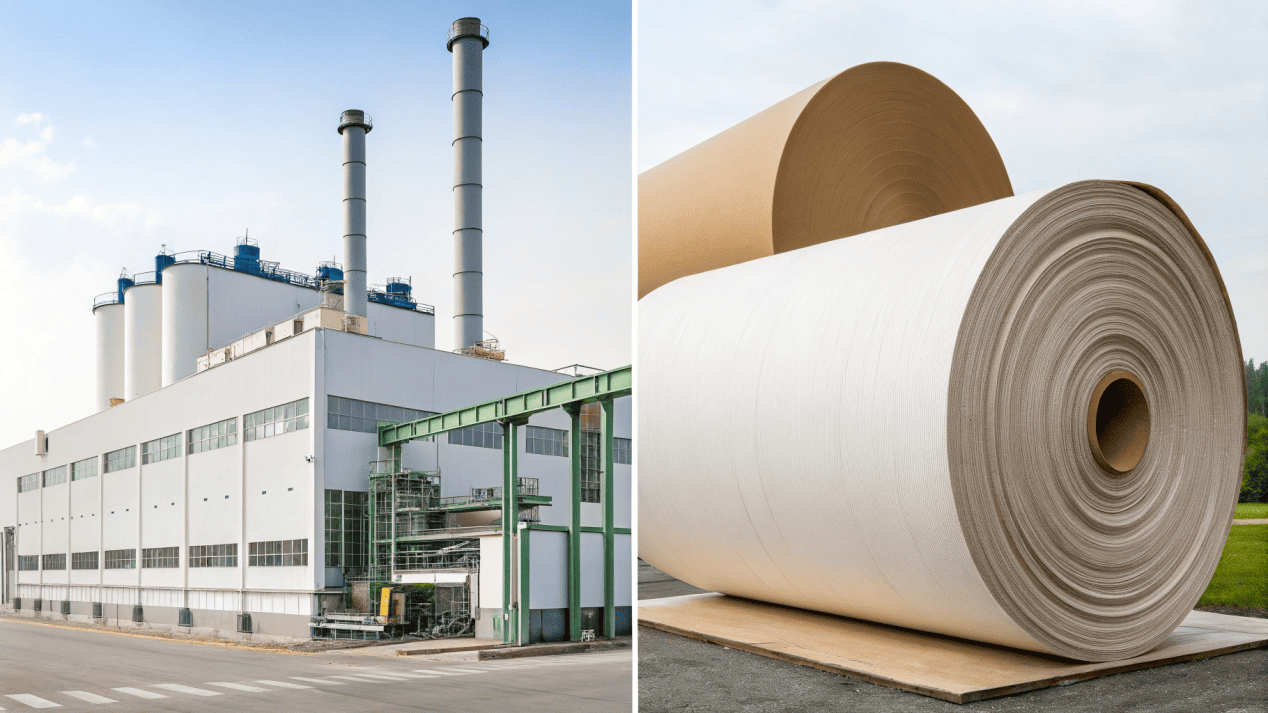
Being transparent about the supply chain builds trust. A factory like mine does not chop down trees and make paper. We are manufacturing partners who operate within a large, global ecosystem. Here’s how it works.
The Source: The Paperboard Mills
There are giant, global corporations whose only job is to produce massive rolls of high-quality virgin paperboard. We work with world leaders like Stora Enso in Europe, International Paper in the USA, and APP in Asia. My job is to select the best paper from these mills based on your needs for stiffness, smoothness, and printing quality. We choose suppliers who have a reputation for consistent quality and a reliable supply chain.
Our Role as the Converter
Think of us as expert tailors. We don't weave the fabric (the paper), but we are experts at selecting the very best fabric for the suit you want. Then, we use our skill and specialized machinery to cut and sew that fabric into a perfectly tailored suit (your custom cup). We procure the certified raw material, and our expertise is in printing your design with precision, die-cutting the cup shapes accurately, and forming them into a flawless final product. This specialization ensures high quality at every step.
How Can You Trust That Your Cups Are Safe?
A supplier can say anything about their materials being "safe" or "eco-friendly." You feel uneasy because without proof, you are taking a huge risk with your business and customers.
You don't trust claims; you trust certifications. Independent, third-party certifications like FDA, BRC, ISO 9001, and FSC are non-negotiable proof of safety, quality, and responsible sourcing.
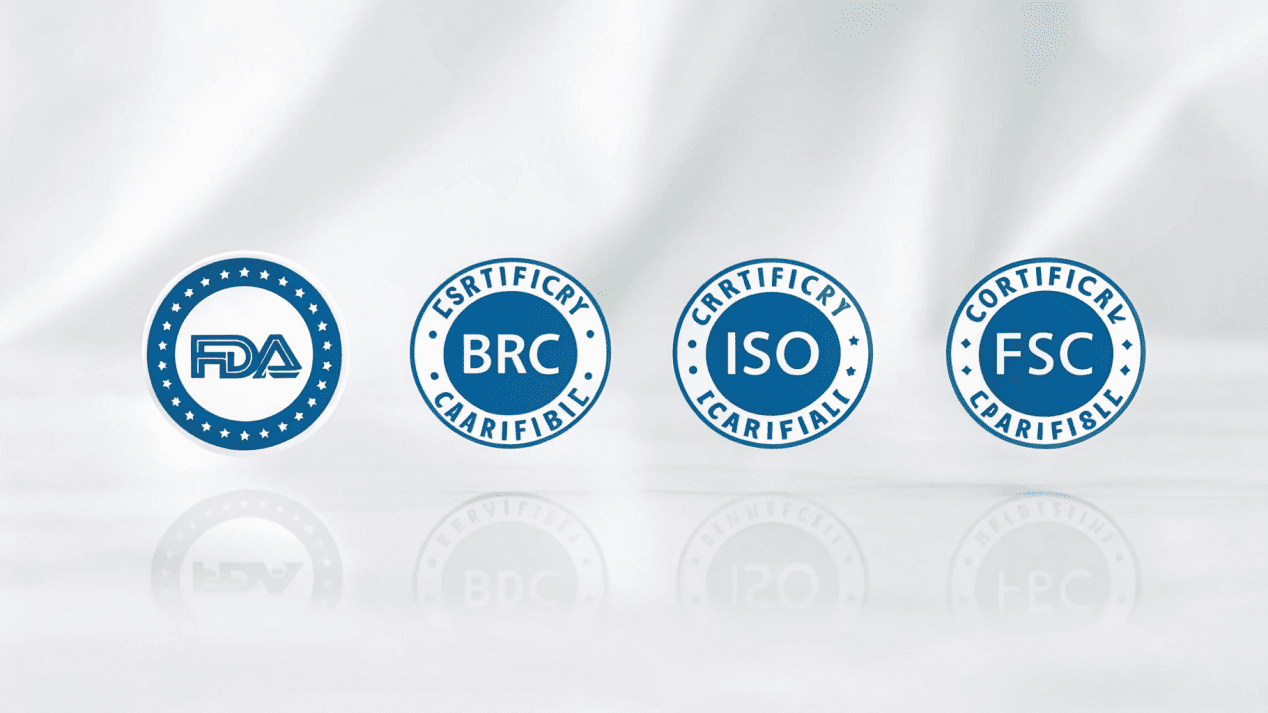
A claim is just talk. A certificate is proof. In my 21 years in this business, I have learned that certifications are the only language of trust. I refuse to work with any material supplier who cannot provide these documents. There is no room for compromise on safety or quality.
What These Certificates Mean for You
When you partner with us, these are the guarantees you get. They are not optional extras; they're the standard for every cup we make.
- FDA (U.S. Food and Drug Administration): This certifies that the paper, ink, and coating are all non-toxic and absolutely safe to be in direct contact with food and drinks.
- BRC (British Retail Consortium): This is a tough global standard for food safety. It proves that our entire factory—from how we store materials to how we produce the cups—is hygienic and follows strict quality control.
- ISO 9001: This is a quality management certification. It shows that we have strong, repeatable processes to ensure every cup we make for you is consistent and meets high standards.
- FSC (Forest Stewardship Council): This certification verifies that the virgin wood pulp used for our paper comes from forests that are managed in an environmentally and socially responsible way.
Conclusion
Great cups are made from great materials. Always choose certified virgin board and the right coating to guarantee safety, performance, and protect your brand's reputation with every sale.
